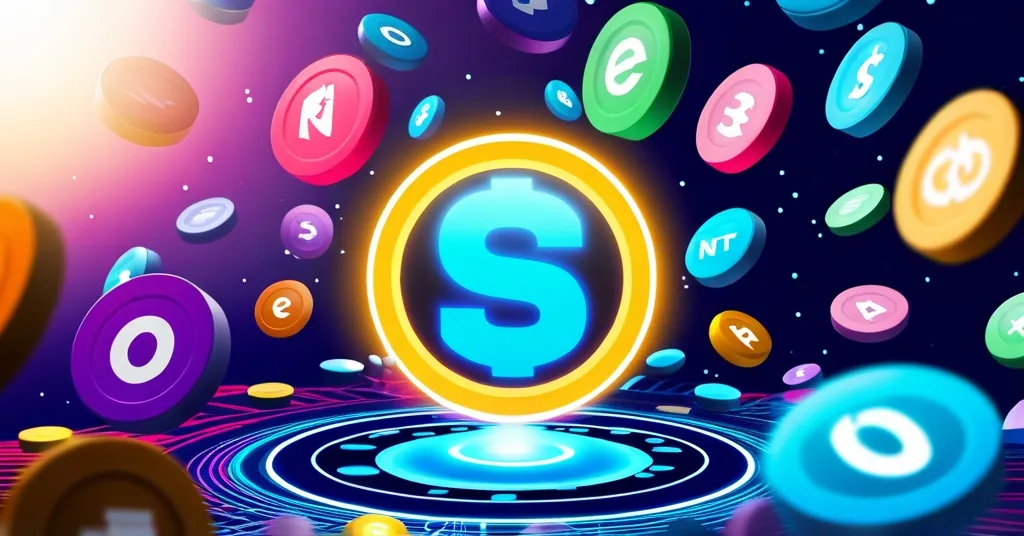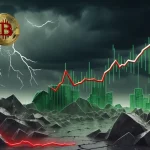OpenSea Surges to 71.5% Market Share with SEA Token Launch

OpenSea’s Market Share Soars to 71.5% Amid SEA Token Frenzy
– OpenSea reclaims 71.5% market share with SEA token launch.
– Trading volume surges from $3.47M to $17.4M daily.
– Platform responds to criticism by adjusting incentive programs.
– SEA token airdrop targets loyal U.S. users.
– Challenges remain with wash trading and market sustainability.
OpenSea, the go-to marketplace for Ethereum NFTs, has staged a stunning comeback, taking back over 70% of the market. The surge follows the hype surrounding its new native token, SEA. Since the announcement on February 13, OpenSea’s daily trading volume has skyrocketed from an average of $3.47 million to $17.4 million, while daily transactions have more than doubled from 6,100 to 14,700. Imagine being rewarded for sticking with your favorite platform—that’s the allure of the SEA token.
The SEA token, built on Ethereum, aims to boost user engagement and liquidity within OpenSea. Users can earn these tokens by participating in various activities on the platform, such as buying, selling, or creating NFTs. It’s not just about the hype; it’s about creating a more dynamic ecosystem where users are incentivized to stay active. But with great power comes great responsibility, and OpenSea’s journey hasn’t been without its share of controversy.
The platform’s initial XP-based incentives, where users earned experience points (XP) by trading, faced backlash for allegedly promoting wash trading. Wash trading is when someone buys and sells the same asset to artificially boost market activity. In response, OpenSea swiftly suspended these incentives and introduced a new “XP shipments” rewards model to target early adopters of its OS2 marketplace. It’s like getting a care package for being part of the early crew—a strategic pivot to keep the community engaged.
OpenSea CEO Devin Finzer acknowledged the challenges, stating:
“Devin Finzer, CEO of OpenSea, recognized the criticism and said the team is reassessing its strategy even though liquidity incentives are still crucial.”
This shift highlights OpenSea’s commitment to improving its platform while navigating the tricky balance between liquidity and fair trading practices.
The SEA token also brings the promise of an airdrop, a crypto community favorite. U.S. users are eligible based on their past activity on the platform, though specifics remain under wraps. It’s a nod to those who stood by OpenSea through thick and thin, especially during the 2021 bull run. But let’s not forget, airdrops are a bit like winning the lottery—some get lucky, while others watch from the sidelines.
OpenSea’s resurgence in the NFT market is impressive, yet it raises questions about long-term sustainability. As competitors like Blur lose ground, the landscape shifts, showcasing the cutthroat nature of the space. Yet, amidst the optimism, we must stay grounded. The challenges with incentive programs and wash trading accusations serve as a reminder that the road to dominance is fraught with ethical and operational hurdles. Only time will tell if OpenSea can keep its newfound market position.
From a bitcoin maximalist’s perspective, one might argue that NFTs and altcoins distract from the core mission of decentralization and financial sovereignty that Bitcoin embodies. Yet, OpenSea’s innovations highlight the diverse roles that different blockchain technologies can play. While Bitcoin might be the anchor, platforms like OpenSea are the sails catching the wind of creativity and community engagement.
Playing devil’s advocate, some skeptics argue that the SEA token is just another hype-driven move in the crypto space. Is it a genuine innovation or merely a short-term engagement boost? While the token has revitalized OpenSea, the long-term impact remains to be seen. Critics might say it’s all smoke and mirrors, but for now, the smoke sure is impressive.
Looking ahead, OpenSea’s story is a testament to the power of innovation and strategic pivots in the world of NFTs. Will the SEA token be the tide that lifts all boats, or just a temporary wave? In an optimistic scenario, OpenSea could continue leading the NFT market, fostering a vibrant ecosystem of creators and collectors. However, the challenges with incentive programs and market sustainability could pose significant hurdles. The crypto world loves a comeback story, but it’s even more fascinated by what comes next.
Key Questions and Takeaways
- What led to OpenSea’s significant increase in market share?
OpenSea’s market share surge was primarily driven by the announcement of its native SEA token, which sparked increased trading volume and transactions on the platform.
- How has OpenSea responded to criticisms regarding its incentive programs?
OpenSea suspended its XP-based incentives and introduced a new “XP shipments” rewards model, targeting early adopters of its OS2 marketplace to address user feedback and concerns about wash trading.
- Who is eligible for the SEA token airdrop?
U.S. users are eligible for the SEA token airdrop, with allocations based on their past activity on the OpenSea platform.
- What challenges does OpenSea face despite its market resurgence?
Despite its market resurgence, OpenSea faces challenges with its incentive programs, including accusations of promoting wash trading and the need to adapt its rewards system to better engage its user base.
- What does the introduction of the SEA token signify for the future of NFT trading on OpenSea?
The introduction of the SEA token signifies OpenSea’s strategy to increase user engagement and liquidity, potentially revitalizing interest in NFT trading by rewarding past and continued platform activity.
- Is the SEA token a genuine innovation or just another hype-driven move?
While the SEA token has revitalized the platform, some skeptics argue it’s a short-term boost rather than a long-term solution. The true impact will depend on OpenSea’s ability to address ongoing challenges and sustain growth.



